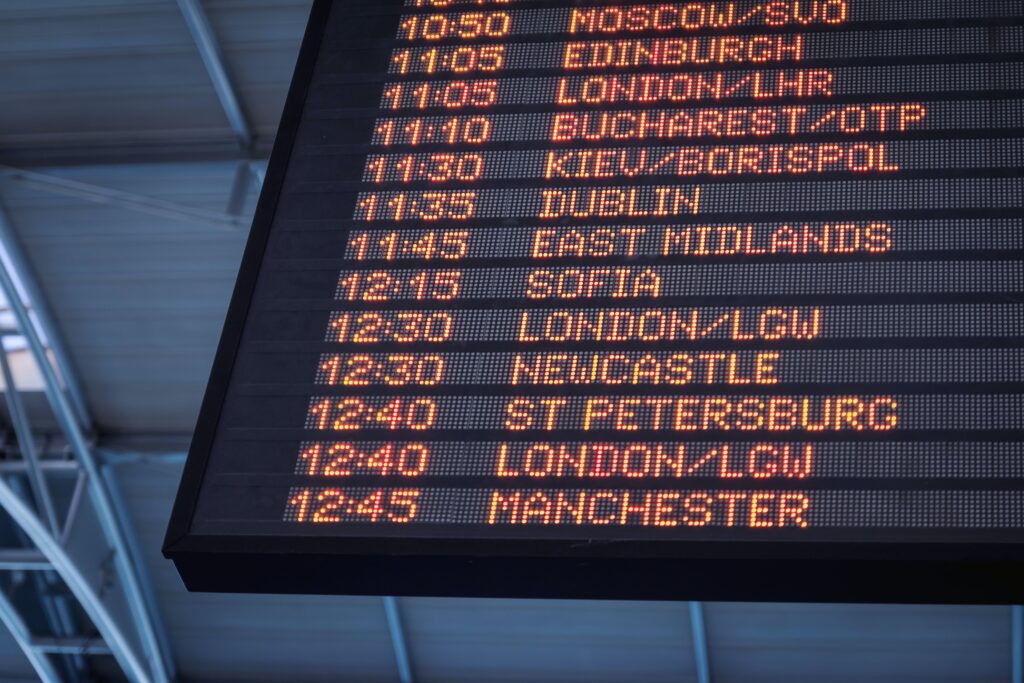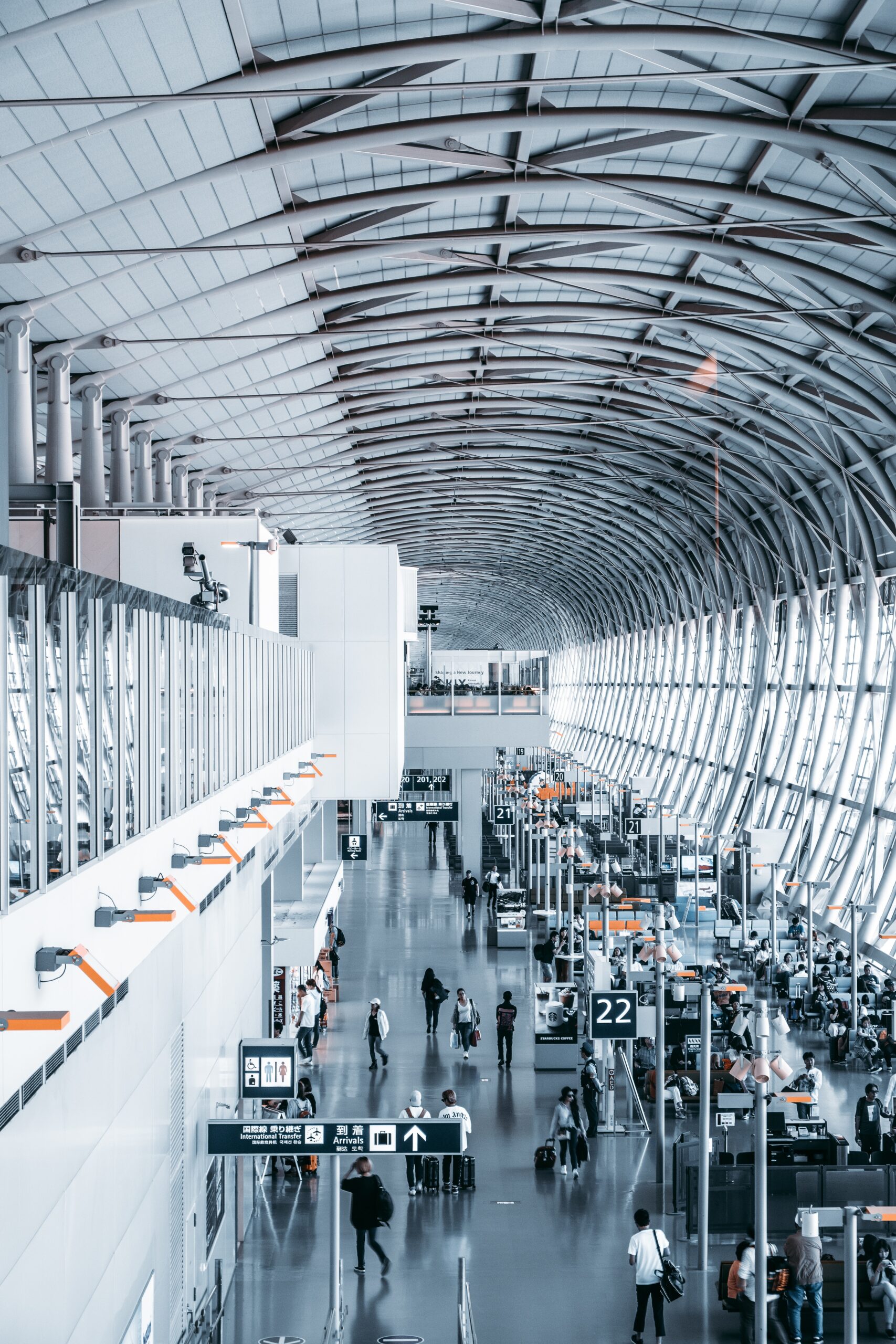Ghana Transportation Guide
Ghana Transportation Guide: Transportation blends tro-tros (minibusses), taxis, and intercity buses, offering diverse options for exploring the country’s vibrant landscapes and cities.


Ghana Transportation Guide – International Airports
Ghana has several international airports that serve as key gateways for both domestic and international travel. These airports are vital for facilitating trade, tourism, and passenger transportation. Here are the major international airports in Ghana:
Kotoka International Airport (ACC): Located in the capital city of Accra, Kotoka International Airport is Ghana’s largest and busiest international airport. It serves as the main point of entry for international travelers and offers numerous international flights to destinations in Africa, Europe, the Americas, the Middle East, and Asia.
Kumasi International Airport (KMS): Kumasi International Airport is situated in Kumasi, the capital of the Ashanti Region. It offers some international flights, primarily to destinations within West Africa.
Takoradi Airport (TKD): Takoradi Airport, also known as Sekondi-Takoradi Airport, serves the twin cities of Sekondi and Takoradi in the Western Region of Ghana. It offers both domestic and international flights, particularly to destinations in the Gulf of Guinea and West Africa.
Tamale International Airport (TML): Tamale International Airport is located in the northern city of Tamale. While it primarily serves domestic flights, it has limited international services, particularly to neighboring West African countries.
Sunyani Airport (NYI): Sunyani Airport is situated in the city of Sunyani in the Brong-Ahafo Region. It primarily serves domestic flights within Ghana.
National Airports
In addition to the major international airports, Ghana also has several national airports, also known as domestic airports, that cater to domestic flights within the country. These airports are essential for connecting various regions of Ghana. Here are some of the national airports in Ghana:
Kumasi Airport (KMS): Kumasi Airport, located in Kumasi, the capital of the Ashanti Region, is one of Ghana’s busiest domestic airports. It serves as a key transportation hub for travelers within the country.
Tamale Airport (TML): Tamale Airport is located in the northern city of Tamale and plays a vital role in connecting the northern region of Ghana with other parts of the country.
Sunyani Airport (NYI): Sunyani Airport is situated in the city of Sunyani in the Brong-Ahafo Region. It provides domestic air travel options for the region.
Wa Airport (WZA): Wa Airport serves the town of Wa in the Upper West Region of Ghana. It offers domestic flights within Ghana.
Ho Airport (HOG): Ho Airport is located in the Volta Region and serves the town of Ho and its surrounding areas.
Takoradi Airport (TKD): While Takoradi Airport is primarily known for its international services, it also offers domestic flights to destinations within Ghana.
Navrongo Airport (NVR): Navrongo Airport is situated in the Upper East Region of Ghana and provides domestic air travel options for the region.
Airstrip at Aflao: Aflao is a town in the Volta Region of Ghana, and it has a small airstrip that serves domestic flights.
Ghana Transportation Guide – Trains
Ghana’s railway network is relatively limited compared to some other modes of transportation in the country, and passenger train services are not as extensive as in some other parts of the world. However, there have been efforts to improve and expand the railway system to enhance both freight and passenger services. Here are some key points about the train services in Ghana:
Limited Passenger Services: Passenger train services in Ghana were limited. The Ghana Railway Company Limited (GRCL) operated some passenger services, primarily on the Eastern Line between Accra and Tema and the Western Line between Takoradi and Kumasi. These services were not as frequent or extensive as other forms of transportation, such as buses and tro-tros (shared minivans).
Freight Transport: The railway network in Ghana is primarily used for freight transport, including the movement of goods like cocoa, minerals, and other commodities. It plays a crucial role in supporting the country’s economy by facilitating the transportation of goods.
Modernization Efforts: Ghana has made efforts to modernize and expand its railway infrastructure to improve transportation services within the country and enhance connections with neighboring countries. These efforts aim to promote economic growth and development.
Regional Integration: Ghana is part of regional efforts to improve railway connectivity in West Africa, including plans for the rehabilitation and construction of railway lines to strengthen transportation links between countries in the region.


Ghana Transportation Guide – Buses
Buses play a significant role in Ghana’s transportation system, providing both urban and intercity travel options for residents and visitors. Various types of buses, including public buses, tro-tros (shared minibuses), and private bus companies, operate in the country. Here’s an overview of the bus transportation system in Ghana:
Public Buses: In major cities like Accra, Kumasi, and Tamale, public buses are operated by the respective city authorities or municipal assemblies. These buses provide urban transportation services within the city and its suburbs. In Accra, for example, the Accra Metro Mass Transit (AMMT) operates public buses that serve different routes within the city.
Tro-Tros: Tro-tros are shared minibuses or vans that operate on fixed routes in cities and towns across Ghana. They are a popular and affordable mode of urban transportation, as well as a common means of reaching destinations within the city. Tro-tros are known for their colorful and often decorated exteriors.
InterCity Buses: For intercity travel, Ghana has a network of private bus companies that provide services between major cities and towns. These buses are typically more comfortable and spacious than tro-tros, making them a preferred choice for longer journeys. Several bus companies operate on popular routes, offering various levels of service.
Long-Distance Buses: Ghana’s long-distance buses connect major cities and towns across the country, making it possible to travel between regions. These buses often provide services to neighboring countries as well, such as Togo, Côte d’Ivoire, and Burkina Faso.
Ticketing and Schedules: Passengers can purchase bus tickets at bus terminals, ticket counters, or directly from the driver. The availability of tickets and schedules may vary depending on the route and the bus company. It’s advisable to check with the bus company in advance, especially for long-distance journeys.
Links of interest
Airlines:
Africa World Airlines
AeroSurf
ASKY Airlines
Swift Air
Buses:
STC Ghana
VIP Transport
Metro Mass Transit
OA Transport
Intercity STC Coaches
Ride-Sharing:


We recommend
Ghana travel tips
Our guide offers essential Ghana travel tips and insights for an unforgettable journey. Plan your trip with us!
Ghana Transportation Guide – SIM Cards
For travelers to Ghana:
Registration: Register your SIM with valid identification as per Ghanaian regulations.
Data Plans: Select a data plan for internet access; popular options include daily or weekly bundles.
Top-Up: Recharge airtime easily at local vendors, shops, or through mobile banking.
Coverage: Confirm coverage in your specific travel areas, especially if visiting remote locations.
Messaging and Calling: Stay connected with local friends and services through calls and messaging apps.
Dual SIM Phones: Consider using a dual SIM phone to maintain connectivity while using your home country SIM.
Emergency Numbers: Save local emergency numbers for quick assistance.
Roaming: Check with your home carrier regarding international roaming rates if planning to use your home SIM.
SIM Card Removal Tool: Bring a SIM card removal tool for convenience in switching cards.
Network Quality: Expect reliable network coverage in urban areas, but signal strength may vary in rural regions.
Internet Speed: Enjoy decent 3G/4G speeds in major cities for smooth internet browsing.
SIM Replacement: Report any lost or damaged SIM immediately to your provider for a replacement.
Local Apps: Download local apps for transportation, services, and attractions to enhance your travel experience.
Language Settings: Set your phone language to English for easier navigation.
Balance Check: Dial the respective USSD code to check your balance regularly.
SIM Expiry: Be aware of SIM card validity; top up or use periodically to avoid deactivation.
Currency Converter
Currency Converter EUR/USD: Mon, 14 Apr.
Unit Converter
Ghana Transportation Guide – Maps
What map do you need?
Choose your destination
More information about this country







